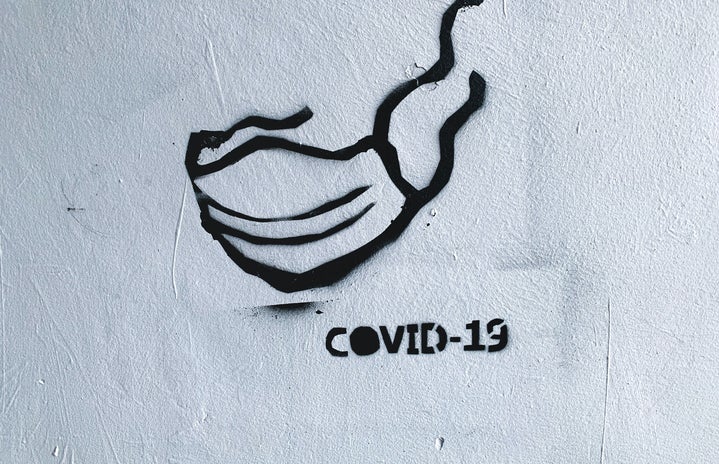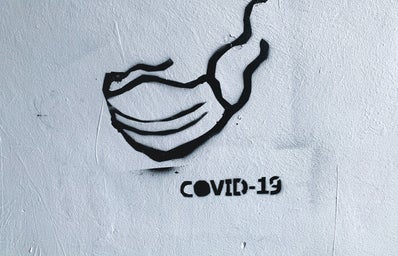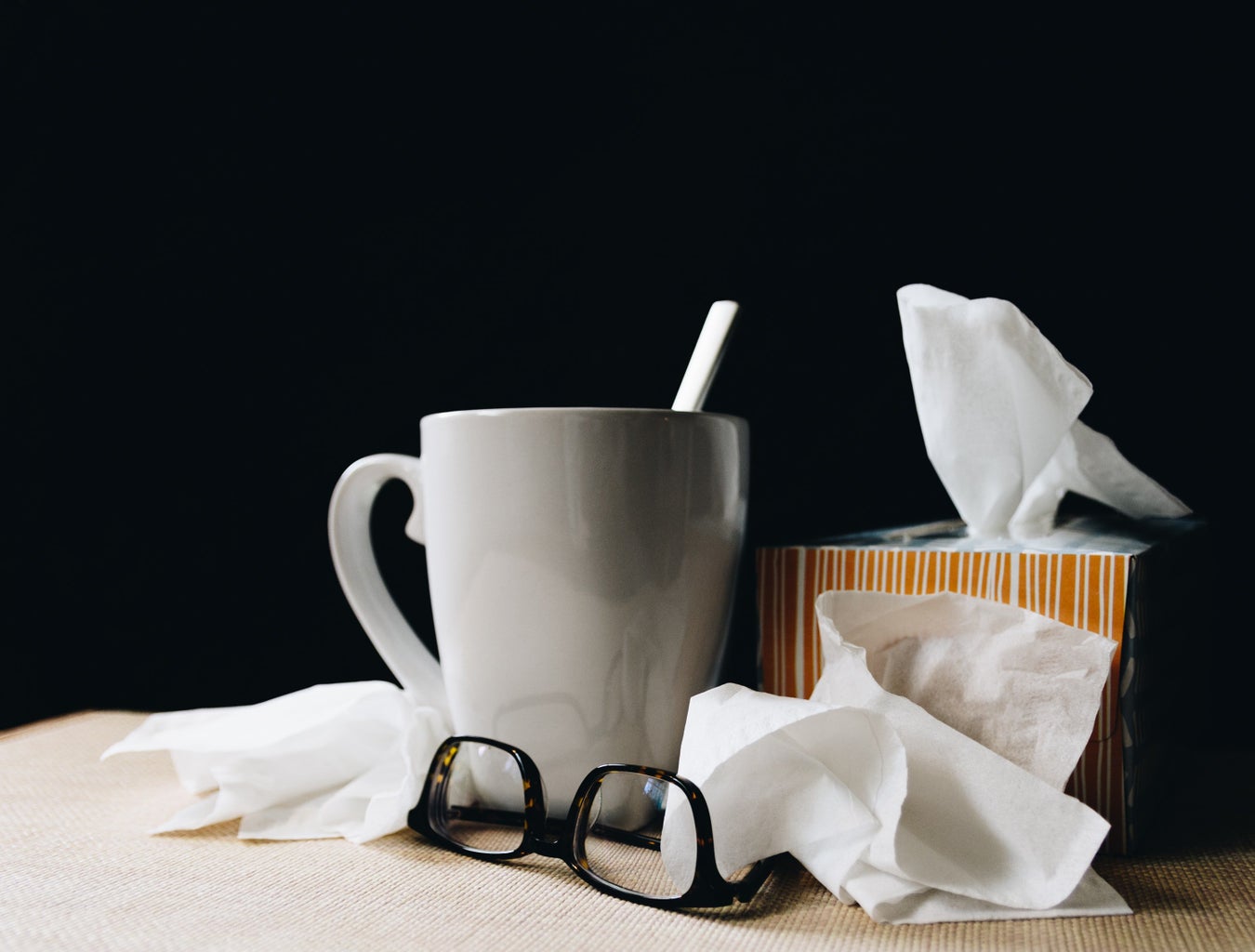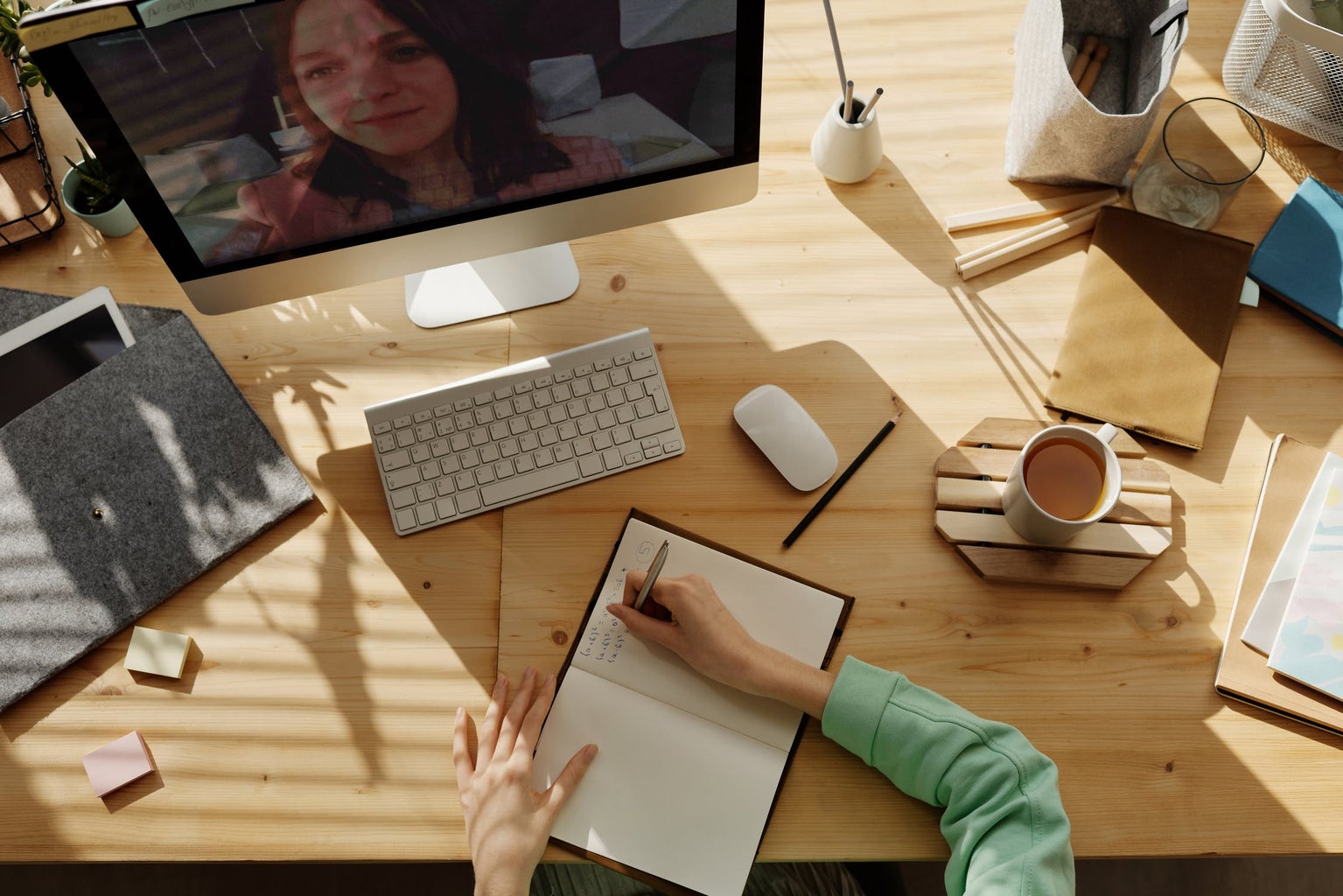This is a topic I have been waiting to write about for over two years. “What to do when you get COVID-19” has been sitting in my HerCampus ideas list in my notes app for the past semester and a half. And at last, here I am writing about it.
On one Sunday in February, I began experiencing what felt like pins and needles in my throat and sinuses. This soon turned into what felt like one of the worst migraines I had ever had, and overnight became a combination of strep throat and the flu. I woke up with a stuffy nose, a cough, and was running at least a one hundred degree fever and ended up testing positive for COVID-19. These symptoms stayed pretty consistent up until day four-ish when they started getting less and less severe, but on day six I ended up losing my taste and smell. It was something out of a horror movie, but luckily started coming back a few weeks later. Throughout all of this, the most intense and shocking symptom was the COVID fatigue and brain fog. I was almost bedridden for the first half of my quarantine because of how exhausted my body was from fighting off the virus.
I spent a lot of my time in quarantine watching vlogs and reading articles about people’s experiences with COVID. I find it hard to believe that many of these stories aren’t glorified, and the advice I got wasn’t feasible at all. So, coming from someone who got COVID at what feels like the tail “end” of this pandemic, here’s my advice to people who test positive.
1. It’s okay to panic.
My instinct is to say “stay calm, don’t panic!!” but it’s completely okay to panic and be nervous. This virus has caused a lot of hardship on a lot of levels for a lot of people, and getting infected with it isn’t, and shouldn’t be, a minute ordeal. A lot of us are still recovering from the communal and individual trauma that COVID has caused. It’s okay to be scared, it’s okay to panic. Just don’t let it consume you—especially if you’re fully vaccinated, you’re going to be okay. Remember that you aren’t the only person who has ever had COVID. Give yourself permission to panic for a little bit, let yourself feel the fear. Meditate on it, journal about it, talk to a friend about it, and then, as much as you can, find space to let it go.
2. Tell your close contacts and don’t feel embarrassed about it!
It’s so, so important to let the people around you know that you tested positive so they can do what they need to do to feel safe and keep themselves healthy. A lot of people, myself included, will admit that telling your close contacts that you tested positive can be really uncomfortable. To potentially spark that sense of panic and fear in someone is not easy or fun at all. But it’s not your fault. This is a highly transmissible virus, a lot of people get it, and a lot of people won’t know if they have it until a few days in. But as soon as you find out, tell the people around you. You can spend your quarantine with the other people that test positive (either physically or virtually!) and the ones who test negative can be there to get you groceries, takeout food, medicine, and so on.
3. Don’t expect to find the cure to the common cold or become the next Harry Styles.
When my 10 day quarantine started, I told myself it was the perfect opportunity to be productive. I was going to pick up the guitar again and read the old books on my shelf and reconnect with old friends… none of that happened. I spent most of my time in bed, listening to my comfort playlists and sleeping. Part of me was kicking myself over not being productive enough—I had all of this time on my hands and couldn’t do one productive thing. But if your body needs time to rest and recover, let it rest and recover. Don’t push yourself to be productive, that can all happen later. This isn’t to say you should spend all of your time scrolling through TikTok and Instagram. I promise it’s not good for your physical OR mental health and gets really old really fast when it’s all you have to do.
Whatever time I spent not being actively “productive,” I spent listening to random new music and podcasts. It was something so mindless that still gave me something to do and think about. If that’s all you can do, that’s totally okay and if you can do more that’s great! Just make sure you’re prioritizing taking care of yourself.





